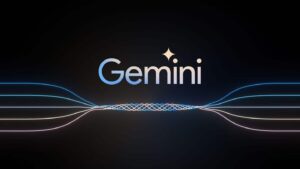Microsoft Introduces Advanced AI Agents to Transform the Workplace, Highlighting Copilot as the ‘AI World Browser’

Microsoft Expands AI Capabilities with New Copilot Features
Introduction to Microsoft’s AI Revolution
In a significant development aimed at transforming the workplace, Microsoft has unveiled an expansion of its artificial intelligence (AI) functionalities through the Microsoft 365 Copilot Wave 2 Spring release. This new phase introduces intelligent AI agents that function not merely as assistants but as autonomous digital collaborators capable of complex reasoning and decision-making.
Meet the New AI Agents: Researcher and Analyst
At the core of this launch are two innovative AI agents named Researcher and Analyst. These agents utilize the latest technology from OpenAI to tackle high-level tasks such as synthesizing business insights, preparing detailed reports, and analyzing company data. This automation is expected to significantly lighten the workload for employees.
Aparna Chennapragada, Microsoft’s Chief Product Officer of Experiences and Devices, articulated the vision behind these advancements:
“AI isn’t just a tool—it’s a teammate.”
She emphasized that we are moving beyond merely having smart tools available to us, entering a phase where every employee can access robust, thinking AI partners.
Key Features of Copilot Wave 2
Microsoft’s rollout includes several new features designed to enhance productivity and collaboration:
- Copilot Notebooks: These facilitate data organization and presentation.
- Copilot Search: This feature enhances the ability to retrieve relevant information efficiently.
- Agent Store: A dedicated marketplace where organizations can deploy both Microsoft-developed and third-party AI agents, including integrations with platforms like Jira, Monday.com, and Miro.
These enhancements signify Microsoft’s ambition to make Copilot the central hub for enterprise AI, much like web browsers did for the early years of the internet.
Insights from the Work Trend Index
According to Microsoft’s 2025 Work Trend Index, which surveyed over 31,000 employees across 31 countries, there is an increasing demand to enhance productivity. However, employees face an overwhelming number of digital interruptions, averaging 275 distractions per day.
One of the report’s key findings is the emergence of what Microsoft terms the “Capacity Gap.” Additionally, the report indicates a shift from grassroots AI adoption to a more strategic, top-down transformation within organizations, revealing that 81% of managers are reevaluating their AI implementation strategies.
The Rise of the "Agent Boss"
A fascinating outcome noted in the report is the rise of the "agent boss." These are employees tasked with overseeing groups of AI agents to maximize their productivity. The updated Copilot Control System allows IT leaders to manage these agents throughout their organizations, ensuring compliance, security, and responsible AI usage.
Competitive Advantage for Early Adopters
Microsoft’s findings also shed light on the advantages enjoyed by “Frontier Firms.” These companies, which adopt AI early in their operations, are seeing significantly better results. Reports indicate that 71% of these firms report thriving business conditions, compared to just 37% of businesses globally.
Implications of AI in the Workplace
The implications of this AI revolution are vast. As AI continues to evolve and integrate into daily tasks, the scope of job roles and organizational structures will likely undergo substantial changes. Microsoft is positioning itself to lead this transformation, believing that intelligent AI agents will become as fundamental to work as personal computers once did.
The initial rollout of these new features is set for late May, marking the beginning of what could redefine collaboration and workflow in the modern workplace. With these innovations, Microsoft aims to reshape how we work, collaborate with one another, and exercise leadership in our respective fields.






